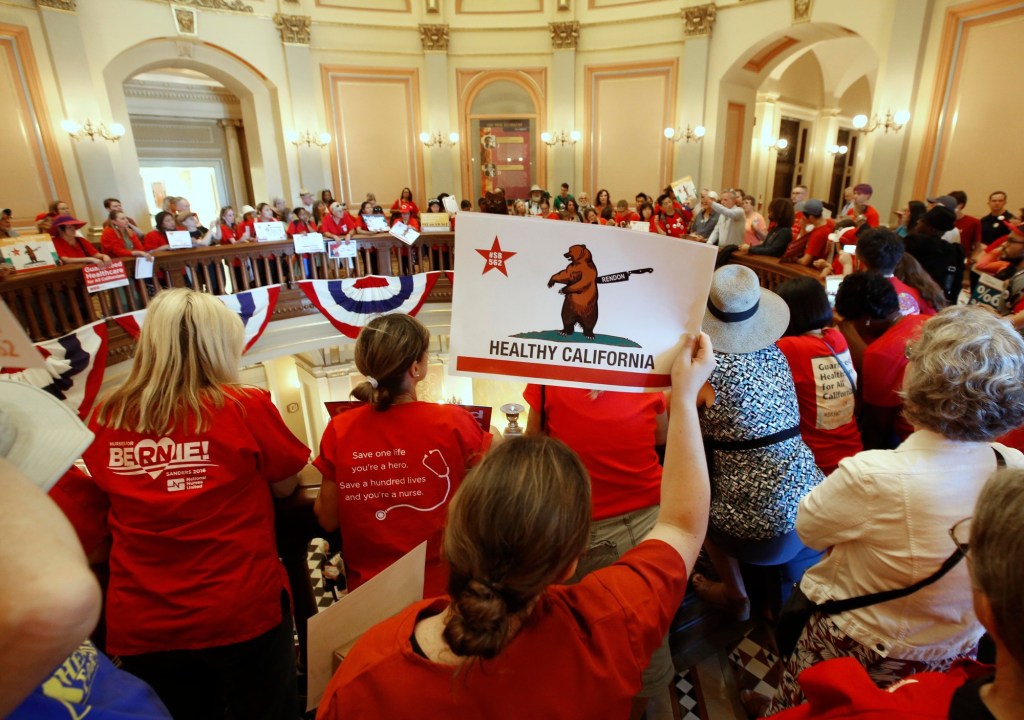California has lost hundreds of thousands of taxpayers for several years in a row, largely due to a lack of overall affordability. Basic programs like education, public health, and public safety are failing. California has the highest or near highest costs in the nation for housing, rent, electricity, gas, transportation, and even food.
If single-payer health care in California wasn't already a pipe dream, it is now. The enormous cost of such a plan is so vast that it would be politically incorrect to even dream of it when the state faces a nearly $70 billion budget shortfall.
There have been several attempts to establish single-payer health care programs in recent years, but all have fallen into disarray, largely due to the prohibitive costs of establishing and operating such a system. . When policymakers talk about it as “free” health care, they are intentionally omitting the real cost of the system, which is paid for by taxpayers.
According to the governor's budget proposal, total annual spending for the state next year is $200 billion.
A massive new project so expensive and with so many unknowns that even the state's respected nonpartisan Legislative Analysis Service came up with an estimate of between $494 million and $552 million. Stop working on projects. Every year. Similarly, the state-created Healthy California Commission estimates the cost at about $500 billion.
Long waits for subpar care are common among single-payer payers, and Californians pay high prices to not get the care they need and deserve, knowing they will definitely be turned away. There will be.flat if Federal Government Allows California to Redirect all About $200 billion of Medicare and Medicaid (Medi-Cal) dollars go to state-run, single-payer health care systems. The rest must be covered by increased taxes.
In 2022, two bills (AB 1400, ACA 11) were introduced that would create new taxes that the left sees as a potential source of funding for the proposed system. For businesses, firstly, it imposes a 2.3% tax on a company's gross receipts in excess of $2 million, and secondly, it imposes a tax on the portion of each employee's payroll in excess of $49,900. It assumes double taxation of a 1% payroll tax and a 1.25% payroll tax for employees. Total payroll for all companies with 50 or more employees. For individuals, those earning more than $149,509 were subject to a graduated “top-up” income tax.
Look at the operational side of the problem, rather than the financial nightmare side, and consider: Would you trust this state to manage your health care? The state is managing a high-speed rail project that is tens of billions of dollars over budget and years behind schedule.
Recall how the Department of Employment Development handled unemployment insurance during the pandemic. This was a nightmare fiasco. State school system? It's a complete failure with 50% to 75% of children not meeting state standards. Legislative Democrats continue to loosen the state's previously tough-on-crime policies, and violent crime rates in California now average 36% higher than the rest of the country. (The latest period for which data is available is as of 2022.) Homeless? The state has spent about $22 billion on the problem over the past six years, but the number of homeless people has only increased from 151,000 to 181,000.
The point is, California isn't known for programs that cut costs, solve problems, or keep things running smoothly.
Whether the governor and his fellow Democrats want to admit it or not, California residents leaving California means a referendum on how the state is run. They are fleeing because they can no longer afford to live in the state after two decades of one-party rule. It was absolutely not worth the taxes they were paying.
Can we get fiscal health back on track? We challenge the governor and his Democratic colleagues to address some of the many problems Californians already face, rather than create new and costly problems. We urge you to focus on keeping Californians here in California by resolving these issues.
AB 2200 is scheduled for consideration in the Assembly Health Committee on April 23. I urge all members of Congress to vote no.
Brian Dahl represents California's 1st Senate District, which includes all or part of 11 counties, including Alpine, El Dorado, Lassen, Modoc, Nevada, Placer, Plumas, Sacramento, Sierra, Siskiyou, and Shasta. He also serves the postponement areas of Tehama, Butte, Colusa and Glenn counties.


